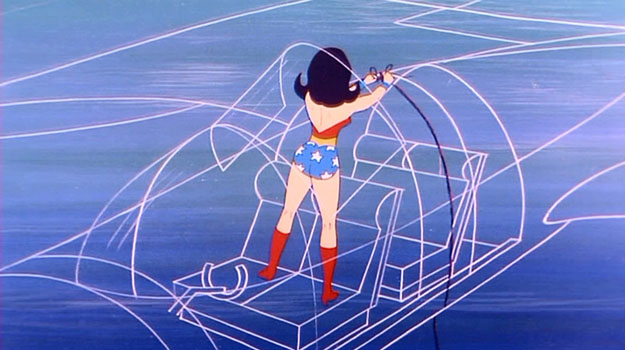If you have strong feelings about cargo shorts, then you are probably an infantile jackass.
/I was surprised to see that a junior high newspaper editorial staff apparently took over The Wall Street Journal last week, publishing a infantile piece on cargo shorts in their esteemed pages.
The thesis of the piece is this:
Cargo shorts are ugly, and men who wear them are stupid and ugly.
Seriously. That's their thesis. It's also the type of sentiment expressed by junior high school cretins who think that a classmate's choice of clothing is reason for ridicule.
This piece was paragraph after paragraph of petty, cruel nonsense, reported as if this matters in any way and absent of any condemnation for the critics of cargo shorts, which is all this piece should really be.
Note:
“Relationships around the country are being tested by cargo shorts, loosely cut shorts with large pockets sewn onto the sides. Men who love them say they’re comfortable and practical for summer. Detractor say they’ve been out of style for years, deriding them as bulky, uncool and just flat-out ugly.”
Detractors? Do you mean snobby jackasses who think that everyone should dress exactly like them or be derided for their alternative views regarding fashion? These people aren't detractors. They're disgusting, small minded, useless people who clearly loathe themselves and their life.
Or how about this paragraph?
“Fashion guru Tim Gunn said in a 2007 interview with Reuters that cargo shorts were the least fashionable item of clothing in his closet. British tabloid Daily Express called cargo shorts “a humiliation for any man over 21 and should be sold only after proof of age has been presented.”
Humiliation? A person's choice of shorts is worthy of feelings of humiliation? I think that declaring any item of clothing to be humiliating should be the real cause for humiliation. This is not junior high. This is real life, where people get to wear whatever the hell they want without the self-professed popular kids saying mean things. Shut the hell up, detractors.
This might be my favorite part of the piece (which means it's the part I hate the most):
“Jen Anderson, a 45-year-old freelance writer in Brooklyn, N.Y., said she used to tease her husband gently about his fashion choices, until he made a purchase that crossed the line: denim cargo shorts. That was “just too far,” she said.
Through what Ms. Anderson described as “strong mocking,” she convinced him to return the shorts. She said she doesn’t like the idea of being seen in public with her husband when he’s wearing cargo shorts, which make him look like “a misshapen lump.”
“It’s a reflection on me, like ‘How did she let him out the door like that?’ ” she said.”
Despite Jen Anderson's advanced age, she has apparently not advanced in terms of maturity since junior high. Her husband's appearance is a reflection of her? Does she really believe that friends and colleagues determine her worth as a human being based in part on her husband's choice of shorts?
If so, who is she spending time with? Reality television celebrities? Fictional characters in John Hughes' films? Victims of traumatic brain injuries?
Did Jen Anderson marry a toy poodle? An online avatar of some sort? What kind of sick and twisted lunatic looks at a person's clothing and makes any kind of assumption about the person's spouse?
People like Jen Anderson, apparently.
She 's worried that people will wonder "How did she let (her husband) out the door like that?"
Did Jen Anderson marry a toddler? Does her husband have no backbone? Is he on a leash? Must he scratch the door or ask permission to exit the home? Does she dress him everyday in the same way I choose my four year-old son's outfit on a given day?
Is she really worried about what people will think of her based upon her husband's cargo shorts?
Actually, I think she is. I also think that is a fairly pathetic way of living beyond high school.
Last bit of awfulness from the piece:
“GQ magazine last summer wrote that cargo shorts with slim pockets are acceptable, but not if “they look anything like the ones you picked up at the mall when you were trying to dress like a cool kid in middle school.”
I was so happy that GQ took the time to inform us about what is acceptable and what is not. Why they are the arbiters of what people can wear without being ridiculed by the likes of Jen Anderson, Tim Gunn, and Daily Express is beyond me. I suspect that few people give a damn about what GQ finds acceptable, and those that do aren't worth the pages that the magazine is printed on.
I would like to propose a few alternatives to the idea that cargo shorts should be an item of ridicule:
- Why not let people wear whatever the hell they want and leave them alone?
- Why don't we all grow up past our infantile junior high school sensibilities and let our fellow human beings look and feel they way they want without comment?
- How about finding a real problem to worry about other than a man's decision to wear shorts with large pockets?
- Why don't we all stop worrying about what the likes of Jen Anderson think of us when we leave the house?
- How about we embrace and perhaps even celebrate diversity of appearance in all its forms? Even if that diversity comes in the form of cargo shorts?
I don't own any cargo shorts, and therefore, I don't wear any cargo shorts, but if you do, happy news!
I don't care. I probably won't even notice.
If you wear pink and green cargo shorts with three dozen pockets and an upside-down No Parking sign woven on the ass, I don't care, either. If you are happy, I am happy for you.
And if Tim Gunn or Jen Anderson or GQ anyone else tells you that your cargo shorts look dumb or ugly or are a source of humiliation, you can tell them to go to hell. Or tell them to go back to high school, where we were supposed to have left that nonsense behind.
Here is an idea: Just as you are about to open your mouth in criticism of another person's clothing choices, stuff an apple in your mouth and silence yourself, because you are more akin to a pig than a decent human being.










































